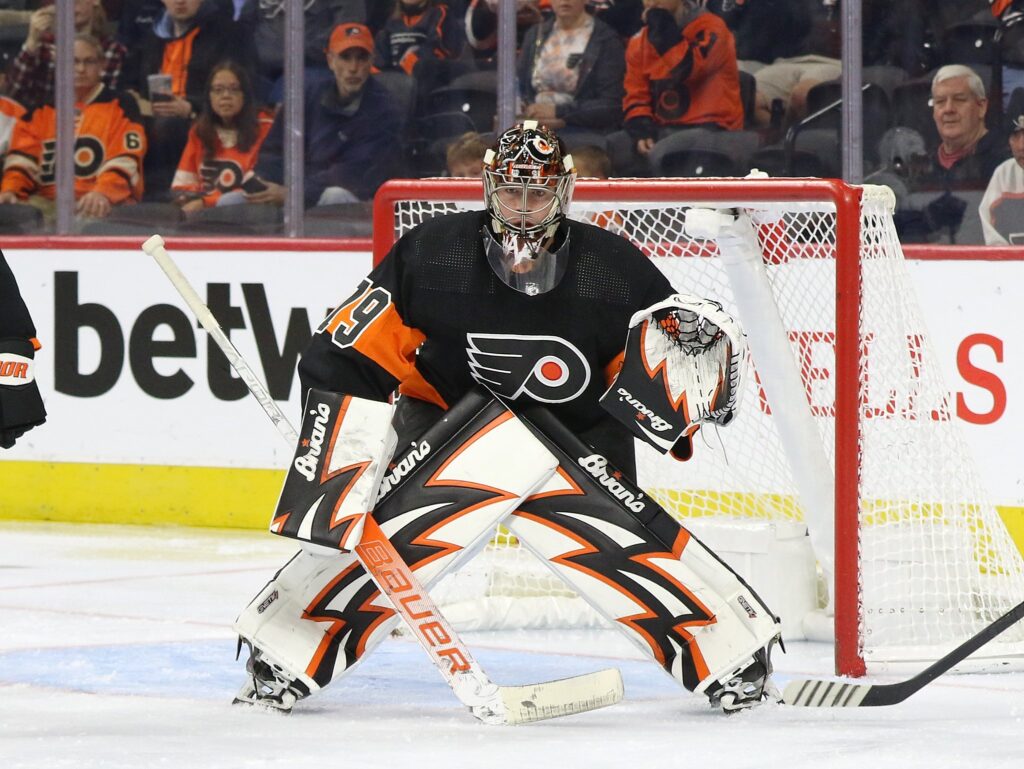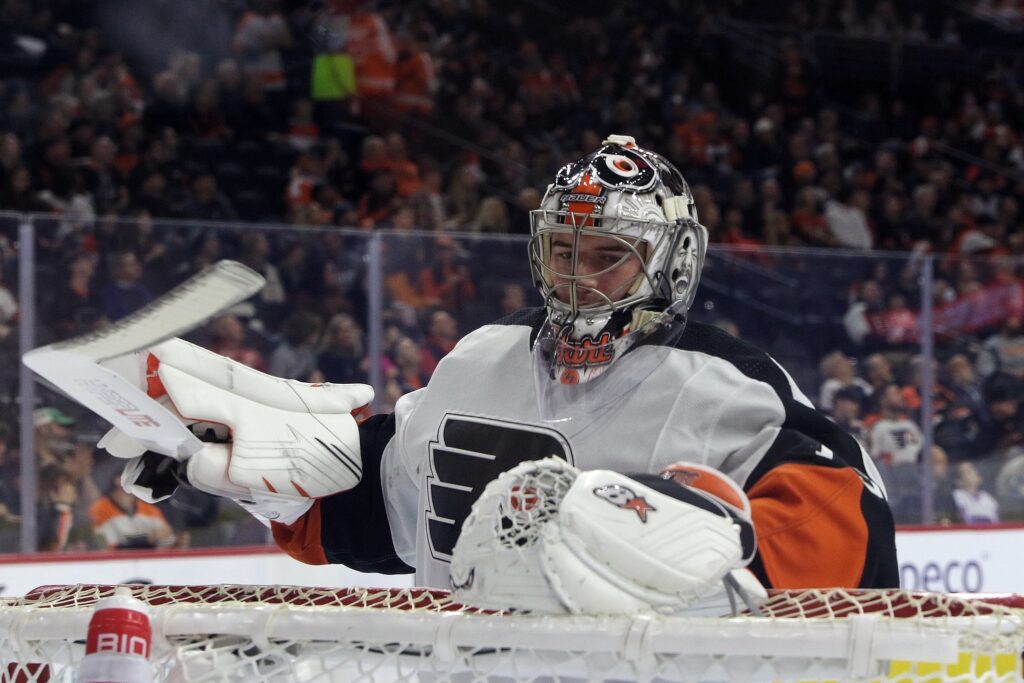The news dropped with the force of a slapshot to the chest: Carter Hart is back. On a professional tryout (PTO) with the Vegas Golden Knights, the 27-year-old goaltender has officially re-entered the NHL ecosystem. Hart is the first of the five members of the 2018 Canadian World Junior team to sign a contract following their acquittal in a high-profile sexual assault case, making his return a watershed moment for the league, the players involved, and a hockey world still grappling with the fallout. For the Golden Knights, an organization built on audacious moves, this may be their biggest gamble yet.
The Long Road Back to the Ice
It’s been a long time since Carter Hart strapped on the pads for an NHL game. His last appearance for the Philadelphia Flyers, the team that drafted him and for whom he played his first six seasons, was on Jan. 20, 2024. Three days later, he took an indefinite leave of absence. A week after that, he was ordered to surrender to police in London, Ontario.

The ensuing legal process consumed the next year and a half. On July 24, 2025, Superior Court Justice Maria Carroccia delivered a not-guilty verdict for Hart and his four co-accused teammates. Legally, the matter was closed. For the National Hockey League, however, the book remained open.
Before his nearly two-year hiatus, Hart had carved out a respectable, if sometimes inconsistent, career with the Flyers, posting a record of 96−93−29 with a 2.94 goals-against average. He was once considered the franchise’s long-awaited answer in net, a cornerstone to build around. Now, he returns not as a franchise savior, but as a player on a tryout, looking to prove he still belongs.
Not Guilty, But Not Unscathed
While the Canadian legal system cleared Hart of criminal wrongdoing, the NHL’s own investigation, which began in 2022, drew a different conclusion about the players’ conduct. The league’s verdict was a masterclass in nuance. In a statement, the NHL concluded that while the events were not found to be criminal, the players’ behavior failed to meet the league’s standard of moral integrity. The league described the events of 2018 as “deeply troubling and unacceptable.”
This finding came with tangible consequences. Though Hart and the others became eligible to sign NHL contracts on Oct. 15, 2025, the league stipulated that Hart is not permitted to play in any games until Dec. 1, 2025. This carefully calculated delay ensures his total time away from the league will stretch to nearly 22 months, a de facto suspension that acknowledges the gravity of the situation without contradicting the court’s verdict.
Vegas coach Bruce Cassidy acknowledged the practical reality of this long layoff, noting that Hart “needs some work” after being away from elite competition for so long. The plan is for him to be with the team daily, working his way back into game shape, a process that will unfold under an intense microscope.
All In: Why Vegas Made the Move
If any organization was going to take this plunge, it was Vegas. From their stunning expansion draft to their blockbuster trades for Jack Eichel and Mark Stone, the Golden Knights have consistently demonstrated a willingness to take big swings in their relentless pursuit of the Stanley Cup. The signing of Carter Hart is entirely in character.
The move is not just a philosophical one; it’s born of pragmatism. With starting goaltender Adin Hill sidelined with a lower-body injury, the Golden Knights faced a sudden uncertainty in the crease. Hart, a pending RFA before his leave, represents a low-cost, high-upside solution. The PTO structure mitigates the financial risk. If he falters or the external pressure becomes a distraction, the team can walk away with minimal consequence. They get an extended look at a former top prospect without committing a roster spot or significant cap space.
The potential reward, however, is substantial. If Hart can regain the form that once made him one of the most promising young goalies in the world, Vegas could solidify its goaltending tandem for another deep playoff run. As is often the case in professional sports, winning has a way of sanitizing controversy. Success on the ice could make this a story about hockey again.
This approach stands in stark contrast to that of other rumored suitors. The Edmonton Oilers, for example, reportedly shied away, viewing the potential public relations fallout as a risk not worth taking, a move that could tarnish the organization’s reputation regardless of Hart’s on-ice performance. Vegas, it seems, has a different risk calculus.
Acceptance, Acclaim, and Accusation
The reaction to the signing has been as complex as the situation itself. Hart, for his part, expressed contrition and gratitude. “I’m beyond grateful, excited and honored to be part of the Golden Knights,” he said. “I’ve learned a lot. I’ve grown a lot.” He emphasized a desire “to show the community my true character and who I am and what I’m about.”
The Golden Knights organization, in a carefully worded statement, stressed that they were “aligned with the process and assessment the NHL and NHLPA made in their decision,” reaffirming their commitment to their core values. Inside the locker room, the move has been met with support. Captain Mark Stone offered a simple, pragmatic endorsement, calling Hart a “Good goalie.” Jack Eichel went further, vouching for his character based on conversations with mutual acquaintances.
Outside the organization, however, the signing has been met with a more critical eye. For many, this represents another turn of “hockey’s redemption machine”—a familiar pattern where a scandal prompts a brief period of reflection, only for the involved parties to be quietly reabsorbed into the system once the initial outrage subsides. Critics argue that this prioritizes the business of icing the most competitive team possible over any deeper consideration of ethical fitness.
Conversely, supporters of the move point to the court’s decision as the ultimate arbiter. As one analyst noted, those questioning the signing should “read the judge’s verdict.” In this view, a legal acquittal should be sufficient for a player to resume his career, and the court of public opinion should not supersede a court of law.
For now, Carter Hart is a member of the Vegas Golden Knights, at least on a trial basis. The coming weeks will be a test—of his conditioning, his skill, and his ability to handle the inevitable scrutiny that will follow him. The success of this gamble won’t be measured solely in his save percentage, but in whether a second chance can be granted and earned, both on and off the ice.
Created with the aid of Gemini AI
